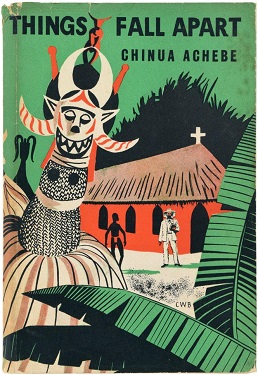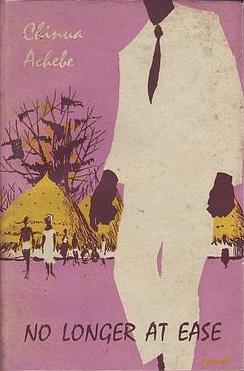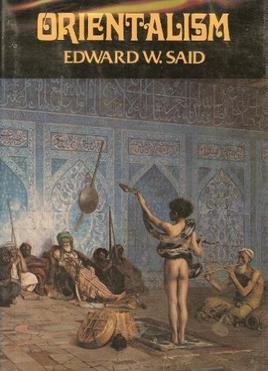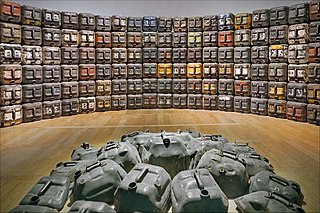
Heart of Darkness is an 1899 novella by Polish-British novelist Joseph Conrad in which the sailor Charles Marlow tells his listeners the story of his assignment as steamer captain for a Belgian company in the African interior. The novel is widely regarded as a critique of European colonial rule in Africa, whilst also examining the themes of power dynamics and morality. Although Conrad does not name the river on which most of the narrative takes place, at the time of writing, the Congo Free State—the location of the large and economically important Congo River—was a private colony of Belgium's King Leopold II. Marlow is given a text by Kurtz, an ivory trader working on a trading station far up the river, who has "gone native" and is the object of Marlow's expedition.

Joseph Conrad was a Polish-British novelist and story writer. He is regarded as one of the greatest writers in the English language and, although he did not speak English fluently until his twenties, he became a master prose stylist who brought a non-English sensibility into English literature. He wrote novels and stories, many in nautical settings, that depict crises of human individuality in the midst of what he saw as an indifferent, inscrutable, and amoral world.

Chinua Achebe was a Nigerian novelist, poet, and critic who is regarded as a central figure of modern African literature. His first novel and magnum opus, Things Fall Apart (1958), occupies a pivotal place in African literature and remains the most widely studied, translated, and read African novel. Along with Things Fall Apart, his No Longer at Ease (1960) and Arrow of God (1964) complete the "African Trilogy". Later novels include A Man of the People (1966) and Anthills of the Savannah (1987). In the West, Achebe is often referred to as the "father of African literature", although he vigorously rejected the characterization.

A jungle is land covered with dense forest and tangled vegetation, usually in tropical climates. Application of the term has varied greatly during the past century.
Postcolonial literature is the literature by people from formerly colonized countries, originating from all continents except Antarctica. Postcolonial literature often addresses the problems and consequences of the decolonization of a country, especially questions relating to the political and cultural independence of formerly subjugated people, and themes such as racialism and colonialism. A range of literary theory has evolved around the subject. It addresses the role of literature in perpetuating and challenging what postcolonial critic Edward Said refers to as cultural imperialism.

Things Fall Apart is the debut novel by Nigerian author Chinua Achebe. It portrays the life of Okonkwo, a traditional influential leader of the fictional Igbo clan, Umuofia. He is a feared warrior and a local wrestling champion who opposes colonialism and the early Christian missionaries. Published in 1958 by William Heinemann Ltd, the novel gained critical acclaim and popularity, and has been translated into fifty languages.
Jonathan G Dollimore is a British philosopher and critic in the fields of Renaissance literature, gender studies, queer theory, history of ideas, death studies, decadence, and cultural theory. He is the author of four academic books, a memoir, and numerous academic articles. With Alan Sinfield he was the co-editor of and key contributor to Political Shakespeare, and the co-originator of the critical practice known as cultural materialism. Dollimore is credited with making major interventions in debates on sexuality and desire, Renaissance literary culture, art and censorship, and cultural theory.

No Longer at Ease is a 1960 novel by Chinua Achebe. It is the story of an Igbo man, Obi Okonkwo, who leaves his village for an education in Britain and then a job in the Colonial Nigeria civil service, but is conflicted between his African culture and Western lifestyle and ends up taking a bribe. The novel is the second book of Achebe and second work in the "African trilogy"; following Things Fall Apart and preceding Arrow of God.

Orientalism is a 1978 book by Edward Said, in which he establishes the term "Orientalism" as a critical concept to describe the Western world's commonly contemptuous depiction and portrayal of the Eastern world—that is, the Orient. Societies and peoples of the Orient are those who inhabit regions throughout Asia and North Africa. Said argues that Orientalism, in the sense of the Western scholarship about the Eastern world, is inextricably tied to the imperialist societies that produced it, which makes much Orientalist work inherently political and servile to power.
Poetic tradition is a concept similar to that of the poetic or literary canon. The concept of poetic tradition has been commonly used as a part of historical literary criticism, in which a poet or author is evaluated in the context of his historical period, his immediate literary influences or predecessors, and his literary contemporaries. T. S. Eliot claimed in Tradition and the Individual Talent, published in 1919, that for a poet to fully come into his own, he must be aware of his predecessors, and view the work of his predecessors as living, not dead. The poetic tradition is a line of descent of poets who have achieved a sublime state and can surrender themselves to their work to create a poem that both builds on existing tradition and stands on its own.

A Man of the People is a novel by Nigerian writer Chinua Achebe. Written as a satirical piece, "A Man of the People" follows the story told by Odili, a young and educated narrator, about his conflict with Chief Nanga, his former teacher who enters a career in politics in an unnamed fictional 20th-century African country. Odili represents the changing younger generation, while Nanga represents the traditional West African customs inspired by Achebe's native Nigeria. The book ends with a military coup, similar to the real-life coup organized by Major Chukwuma Kaduna Nzeogwu, Major Adewale Ademoyega, Major Emmanuel Ifeajuna, Captain Chris Anuforo, Major Donatus Okafor, and Major Humphrey Chukwuka.

Elleke Boehmer, FRSL, FRHistS is Professor of World Literature in English at the University of Oxford, and a Professorial Governing Body Fellow at Wolfson College. She is an acclaimed novelist and a founding figure in the field of Postcolonial Studies, internationally recognised for her research in colonial and postcolonial literature, history and theory. Her main areas of interest include the literature of empire and resistance to empire; sub-Saharan African and South Asian literatures; modernism; migration and diaspora; feminism, masculinity, and identity; nationalism; terrorism; J. M. Coetzee, Katherine Mansfield, and Nelson Mandela; and life writing.
Postcolonialism is the critical academic study of the cultural, political and economic consequences of colonialism and imperialism, focusing on the impact of human control and exploitation of colonized people and their lands. The field started to emerge in the 1960s, as scholars from previously colonized countries began publishing on the lingering effects of colonialism, developing a critical theory analysis of the history, culture, literature, and discourse of imperial power.
Chin Ce is a Nigerian writer of poetry, fiction and essays and a graphic editor.

Postcolonial international relations is a branch of scholarship that approaches the study of international relations (IR) using the critical lens of postcolonialism. This critique of IR theory suggests that mainstream IR scholarship does not adequately address the impacts of colonialism and imperialism on current day world politics. Despite using the language of post-, scholars of postcolonial IR argue that the legacies of colonialism are ongoing, and that critiquing international relations with this lens allows scholars to contextualize global events. By bridging postcolonialism and international relations, scholars point to the process of globalization as a crucial point in both fields, due to the increases in global interactions and integration. Postcolonial IR focuses on the re-narrativization of global politics to create a balanced transnational understanding of colonial histories, and attempts to tie non-Western sources of thought into political praxis.

The Thing Around Your Neck is a short-story collection by Nigerian author Chimamanda Ngozi Adichie, first published in April 2009 by Fourth Estate in the UK and by Knopf in the US. It received many positive reviews, including: "She makes storytelling seem as easy as birdsong" ; "Stunning. Like all fine storytellers, she leaves us wanting more".

Hopes and Impediments: Selected Essays, 1965–1987 is collection of essays by Chinua Achebe, published in 1988.

Angele Botros Samaan was an Egyptian academic and translator.

Decoloniality is a school of thought that aims to delink from Eurocentric knowledge hierarchies and ways of being in the world in order to enable other forms of existence on Earth. It critiques the perceived universality of Western knowledge and the superiority of Western culture, including the systems and institutions that reinforce these perceptions. Decolonial perspectives understand colonialism as the basis for the everyday function of capitalist modernity and imperialism.

The Hearts of Darkness: How White Writers Created the Racist Image of Africa is a 2003 non-fiction book by Milton Allimadi.














